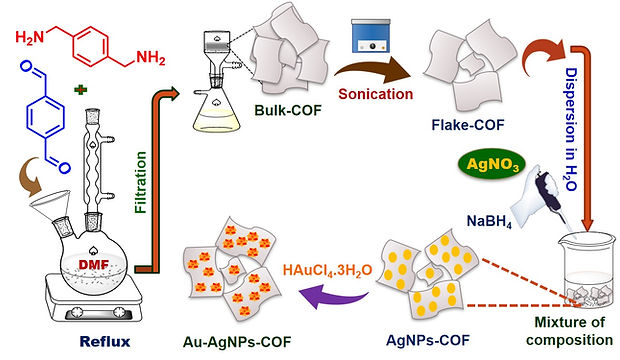



Research Interests
Aspects of research interests: Metal- and metal-free organic frameworks; Zeolitic organic framework; Nanomaterials with nanoparticles; Metal oxides; Electrochemistry; Spectrophotometry and fluorometry; Materials chemistry; Surface Chemistry; Chemical Sensors; Biosensors; Clinical diagnostics; Live cells and exogenous donors. The following points are a list of research interests.
-
Synthesis, characterization, and surface modification of metallic- and non-metallic organic frameworks based on different kinds of aromatic/aliphatic ligands and metal sites.
-
Development of novel and acceptable strategies for the attachment of different framework structures and their composites. These include metal nanoparticles, metal oxide, graphene, Mxene, MoS2, carbon nanotubes, and carbon/graphene dots for electrochemical and optical sensors and energy applications
-
Controlled growth of microstructures and characterization of different MOFs and ZIFs on Ni foam and other film surfaces (GC, ITO, FTO, and flexible electrode surfaces of LSPE and LSGE).
Five key research areas to be addressed
(1) Clinical analysis: Sensors for metabolites, biomarkers (Tumor, Stroke, Cardiac, Alzheimer's disease, etc.), amino acids, vitamins, and drugs. Biomimetic redox substrates and materials for immobilizing enzymes.
(2) Food, water, and environmental safety: Sensors detect toxic compounds to ensure water and environmental safety.
(3) Green energy devices: Surface engineering of molecular electrocatalysts and nanostructured materials for biofuel cells and supercapacitor applications.
(4) Real-time quantification of endogenous biomarkers: Reactive biomarkers and cell signaling molecules provide valuable health information.
(5) Flexible and portable sensors: By combining SPE and LSGE technology with functional materials, selective and sensitive detection platforms for key biomarkers.
















